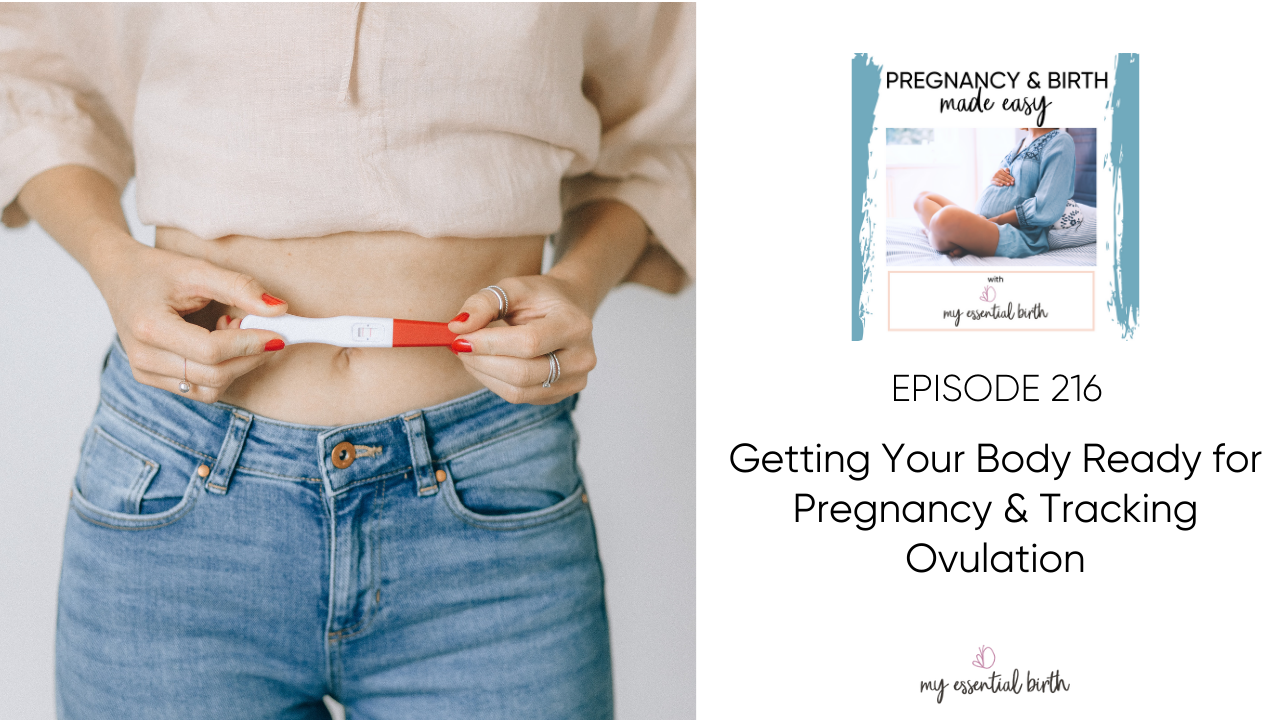Getting Your Body Ready for Pregnancy & Tracking Ovulation

Show Notes:
[2:10] Our Reviewer of the Week, courtmess412, said "I went through and hit “play next” on all the episodes I didn’t want to miss at 38 weeks pregnant (when I realized the books I picked out were never going to get read). I had to be induced but had the confidence to ask for the least [amount of] interventions (so my waters were broken instead of Pitocin given right away). I advocated to walk around and get in the tub and ended up delivering baby without medication (and not even realizing I was about to do it 😅). This podcast gave me the confidence to believe in myself! Thank you!!!"
Quick Tip 💡 If you've purchased the My Essential Birth Course and haven't had a chance to start yet, just listen to it like it's a podcast! You can go back and watch the videos to tie all the information together. Listen and re-listen to get the information and understand. It gives you that confidence and will make you more empowered. You're going to understand what is happening with your body and how to be able to have that conversation with your birth partner and your provider to get what you need.
[4:44] We got a question from Nancy on Instagram: "How do I prepare my body for childbirth?" We love this question because a healthy pregnancy sets you up even more for the best birth experience. A low risk pregnancy means fewer interventions. A lot of the things that Stephanie talks about can also be used pre-pregnancy, but they are things that she talks about within the Birth Course that can be used during pregnancy as well.
[5:35] Your diet is the #1 important thing! Eating a high protein, well balanced diet looks like 80 to 100 grams plus of protein a day. The further you go into pregnancy, the more protein that you need for you and your baby. Start tracking your food intake now! Write down every single thing you ate, the portions, and then track your protein. If at the end of the day, it is less than 75 to 80 grams, do something to boost it.
[8:13] Also make sure you're drinking plenty of water and staying hydrated! It's good for you. I know it's good for your baby. It's good for hormones. It's good for joints. It's good for everything.
[8:47] Stephanie gives her suggestions on incorporating healthy foods (not just protein) into your diet. Don't be too hard on yourself. Take small steps towards making more healthy choices! Those good habits, especially prior to pregnancy, make it much easier to continue throughout pregnancy.
[11:14] Why is your diet so important? The nice thing about healthy eating means that you're going to have less issues potentially throughout our pregnancy, which means you get to be in control of what happens during pregnancy and during your birth process. If you are healthy and low risk because of the decisions that you made prior to and during pregnancy, then you get to be more in charge of those decisions and more in control of your birth!
[11:48] Don't forget to be taking your prenatal vitamins!
[12:45] Physical Activity is so good for you prior to and during pregnancy! The benefit of being physically active prior to pregnancy decreases the risks of preeclampsia, gestational diabetes, and other things that can come up for you during pregnancy. Just move your body for 20-30 minutes a day!
[16:47] If you are overweight, you are putting yourself at risk for high blood pressure, pre-eclampsia, gestational diabetes, and an increased risk for Cesarean birth.
[18:32] If you're looking to become pregnant, a healthy, well-balanced diet, physical activity, a healthy weight, drinking lots of water, taking a multivitamin, all of that can increase your opportunities to be able to become pregnant.
[19:44] If you want to get into it where you're tracking fertility, you can keep track of the different kinds of mucus that you have, like when you get that egg white mucus. You can also keep track of your body temperature checking for ovulation.
[20:11] Stephanie shares her secondary infertility story.
[22:36] Due dates are based off of your last missed period, the first day of your last missed period. They assume that everybody has a 28 day cycle, and they assume that everybody ovulates at day 14.
To Leave a Review ⭐️
- Open Apple Podcasts
- Find “Pregnancy & Birth Made Easy” podcast
- Select “Ratings and Reviews”
- Click the stars!
- Select “Write a Review” and tell us what was the most amazing, comforting, eye-opening thing that you loved!
ALL the best,

Links Mentioned:

